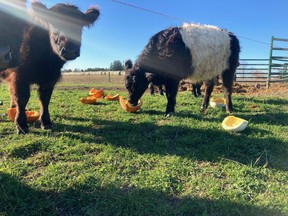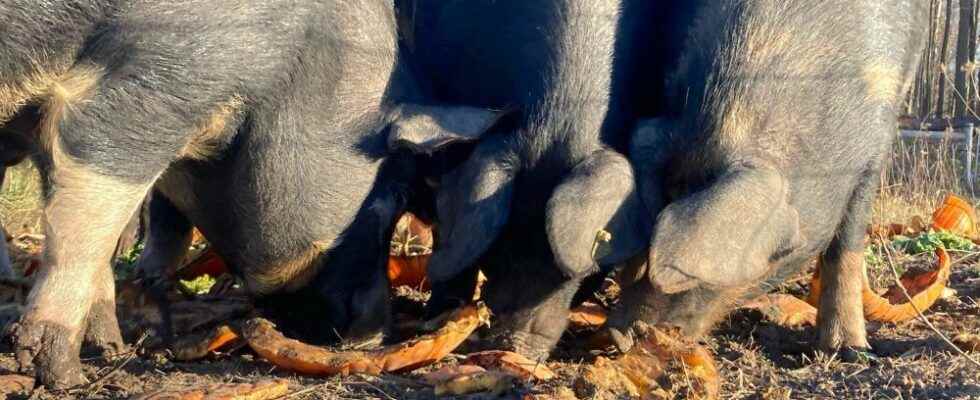A big push in Oxford County to intercept used Halloween pumpkins before they hit the landfill had its most successful haul yet, its lead organizer says.

A big push in Oxford County to intercept used Halloween pumpkins before they hit the landfill had its most successful haul yet, its lead organizer says.
“It went amazingly,” said Bryan Smith, head of Future Oxford, a county-funded group of volunteers and partners that started the annual great pumpkin rescue initiative in 2016.
Each year, the group collects Halloween squash and sends them to soup kitchens and farms across the region. Instead of winding up in landfills, where they’d contribute to methane pollution, the pumpkins become animal feed or part of a community meal.
“When we first started, there were about four drop-off locations. We’re close to 15 now,” Smith said. “The number of pumpkins collected has been extraordinary.”
Ingersoll, a town of nearly 14,000, had more than 1,000 pumpkins recovered alone, he said, noting Future Oxford doesn’t know the total number of pumpkins collected because they aren’t counted at each site.
The county-wide initiative saw more residents, community groups and farmers involved this year than any other, Smith said, describing the effort as “tremendous.”
For Carl VanRooyen, a Woodstock-area farmer who has participated in the great pumpkin rescue for the last three years, the discarded squash make nutritious feed for his livestock.

“Right now,” he said by phone Tuesday, “I’m actually working with the pigs, and they are all going to town on them back here. Most of them go to the pigs, but our cows definitely have gotten into the piles in past years.”
Pumpkin seeds contain a deworming compound that helps cows, VanRooyen said, adding cattle “go nuts” for them.
A large haul of this year’s Halloween leftovers — an estimated 400 to 500 — went to VanRooyen and his family, who own Greener Pastures Eco Farm and Blue Cow Delivery.
But food isn’t the only purpose they serve there. Visitors to the farm are welcome to smash the pumpkins before they’re fed to the animals.
“Not everybody takes me up on it, but those that do just have a blast,” VanRooyen said.
“The satisfaction of smashing the pumpkins, getting some aggression out and then watching the pigs enjoy it is a great little event on its own.”
The success of this year’s pumpkin rescue suggests more people understand how properly disposing of their pumpkins can reduce waste, Smith said.
“It’s also great when you have that conversation with people and realize that they understood that wasting food is not something that should happen, in terms of their own budgets, in terms of the people who are lacking food in our community, and in terms of what that waste costs (when) our community waste foods,” he said.
“Pumpkins of any kind are edible.”
The Local Journalism Initiative is funded by the Government of Canada
